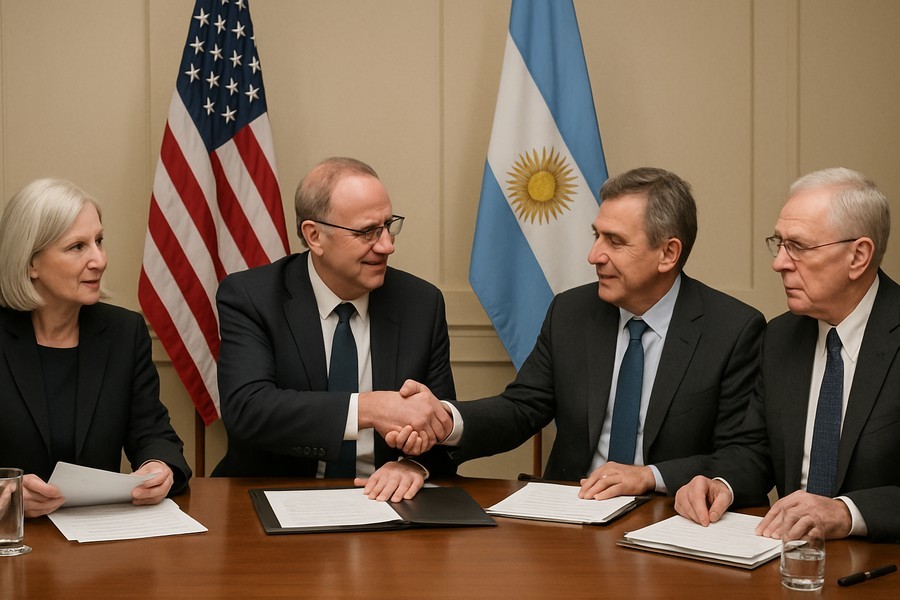
Controversy Surrounds $20 Billion Economic Assistance to Argentina
The U.S. government's decision to provide a $20 billion economic assistance package to Argentina has sparked a heated debate domestically, particularly among American farmers struggling due to the ongoing trade conflict with China.
Details of the Economic Lifeline for Argentina
Recently, top-ranking U.S. officials and Argentine President Javier Milei convened at the White House to discuss a financial agreement that includes a $20 billion currency swap framework with Argentina's central bank. The primary objective is to stabilize the Argentine peso. "Our main aim is to see Argentina prosper," a top official stated during the meeting.
As part of the agreement, the U.S. Treasury will swap dollars for pesos with Argentina’s central bank. The swapped dollars are predicted to be paid back eventually. It was also mentioned that the U.S. had directly bought pesos, although the amount was not disclosed. However, the specifics of the swap agreement remain undisclosed.
"This could be termed as a bailout, or a rescue, or a credit line to a country that would otherwise deplete its reserves," stated a senior fellow at the Council on Foreign Relations and a former Treasury official.
Despite the deal being criticized as a bailout, the same officials have consistently defended it as support for the economic reforms of a crucial South American ally, thereby serving U.S. strategic interests in the region.
Opposition from Domestic Farmers and Policymakers
The decision to provide billions to stimulate a foreign economy has been met with criticism from farmers, Democrats, and some Republicans. They question the logic behind this move, at a time when American soybean farmers are facing significant hardships.
The trade conflict with China has led to a significant reduction in the purchase of American soybeans. China, being the largest buyer of American soybeans, had purchased more than half of U.S. exports in previous years. As a result of the trade war, Argentina and Brazil have begun to fill China's demand for soybeans.
"It feels like the U.S. is bailing out our competitor in the soybean production business," a Nebraska soybean and corn farmer stated. "People are displeased about the markets, and my neighbors are not happy about bailing out Argentina," he added.
Despite their frustrations with the current policies, many farmers still support the U.S. administration, expressing hope that a trade deal will materialize soon. However, there is a growing sense of uncertainty and desperation as time runs out.
Some have expressed that the economic assistance to Argentina seems to contradict the "America First" vision. "It feels like you are supporting your competition. This seems to go against the America First ideology. I don't see any way in which we benefit from this transaction," an Iowa farmer said.
Strategic Importance of the Deal
The financial assistance to Argentina comes at a politically sensitive time for its controversial president. Milei, known for his libertarian beliefs, is facing significant competition in Argentina's forthcoming election, with his disapproval ratings on the rise.
The U.S. deal aims to stabilize the peso just as Argentine voters prepare to cast their votes. "We're aiding a great philosophy to take over a great country ... we want him to succeed," a top official said, adding that if Milei is victorious, other countries in South America could follow Argentina's political lead.
However, it was also stated that the currency swap is dependent on Milei's success in the upcoming elections. "If he loses, we will not be generous with Argentina. If he doesn't win, we're gone," a top official said.
Financial Ties Under Scrutiny
Top officials have also faced scrutiny over Argentina's connections to some of their former colleagues in the finance world. Billionaires with considerable investments in Latin America and Argentina were once colleagues and friends of these officials. However, the officials have denied the deal having any connection to their finance colleagues, claiming that the U.S. is maintaining a strategic interest in the Western Hemisphere.
